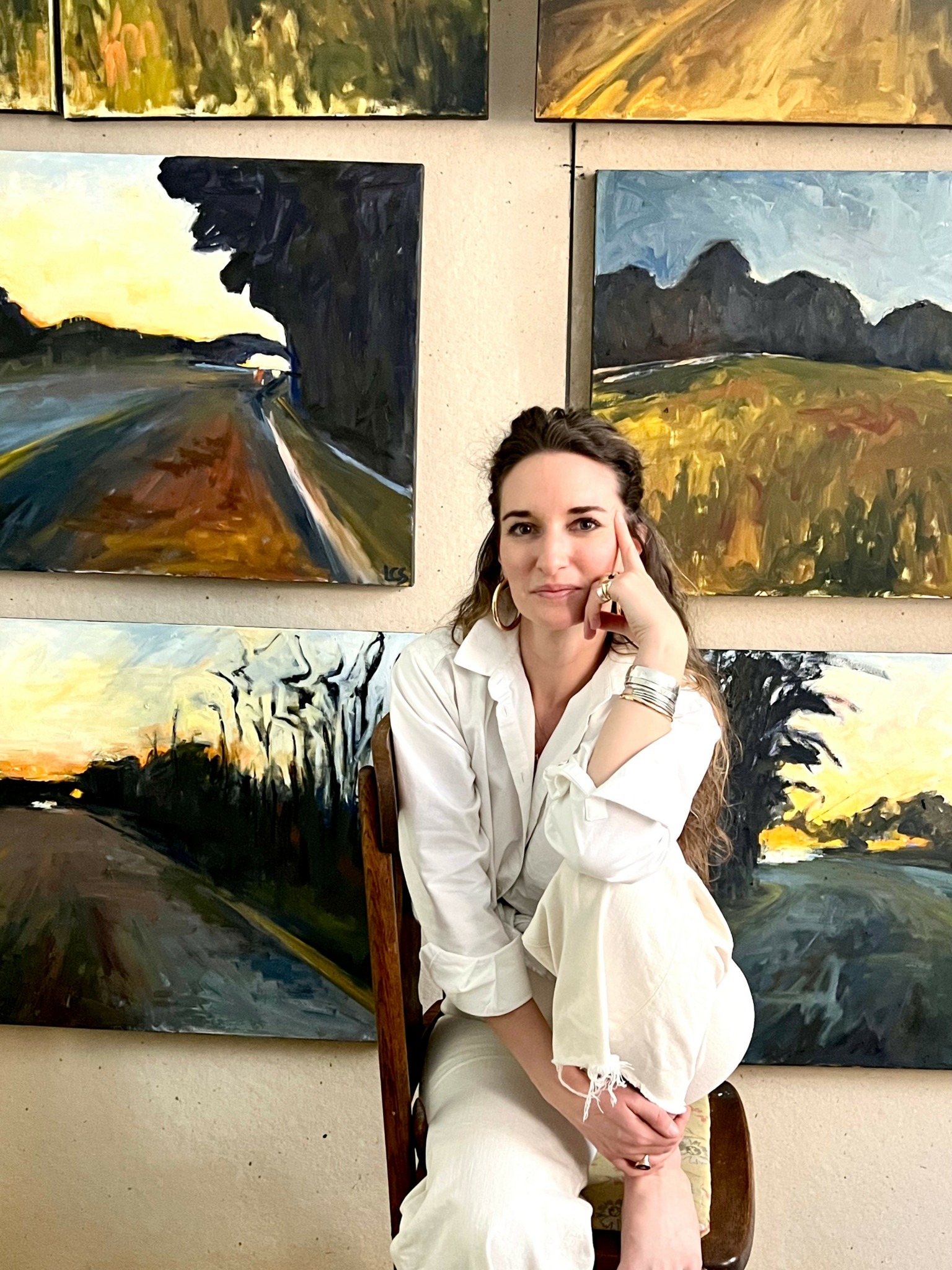We were lucky to catch up with Lucy Clare Spooner recently and have shared our conversation below.
Lucy Clare, thanks for joining us, excited to have you contributing your stories and insights. Are you able to earn a full-time living from your creative work? If so, can you walk us through your journey and how you made it happen?
I have indeed been making a living from painting since the beginning, though this has changed over the years. I have several income streams within the umbrella of painting: I accept commissions for custom work; make paintings that I’m simply inspired to paint (“studio paintings”) and market them to sell online or at art fairs; offer live drawing for private and corporate events; teach workshops; etc. Having several streams helps me hit the income that I’m aiming to hit without putting all my eggs in one basket.
I began by having most of my income from custom work: probably 70% custom, 30% studio paintings, and was not offering live drawing or workshops. Six years later, I’m at about 30% income from custom work, 60% from studio paintings, and 10% or so from live drawing and workshops. Eventually I’d like to have custom work be a very small percentage and have the vast majority of my income from studio paintings. I do enjoy making custom work, but will always prefer to make paintings just based on my own inspiration!
I don’t feel I could have sped up this process. Most of my customers are through word-of-mouth or repeats and that simply takes time to grow, especially when working without a gallery, which I do. I’ve consistently stayed true to what I love and am quite proud that I haven’t taken short cuts nor have I accepted projects that didn’t sit well with my soul. It’s not the sexiest way to grow, but slow and steady has worked for me.
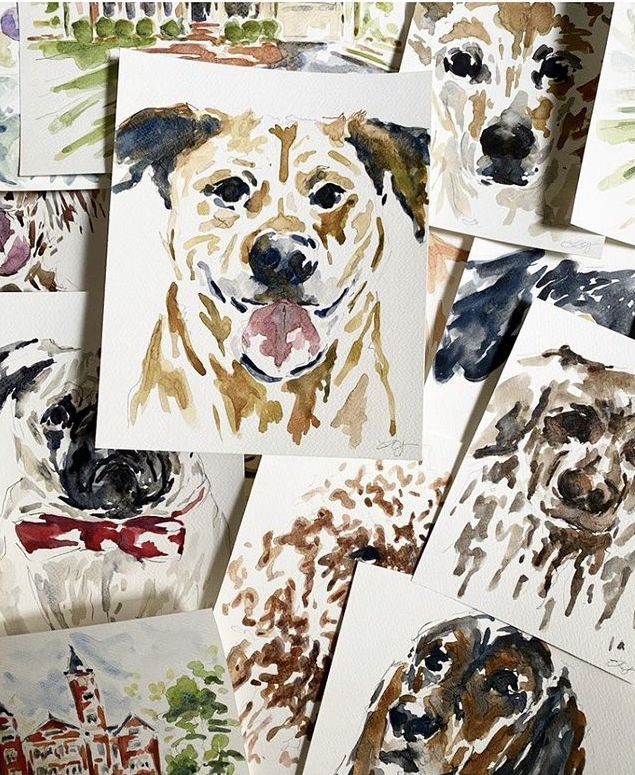
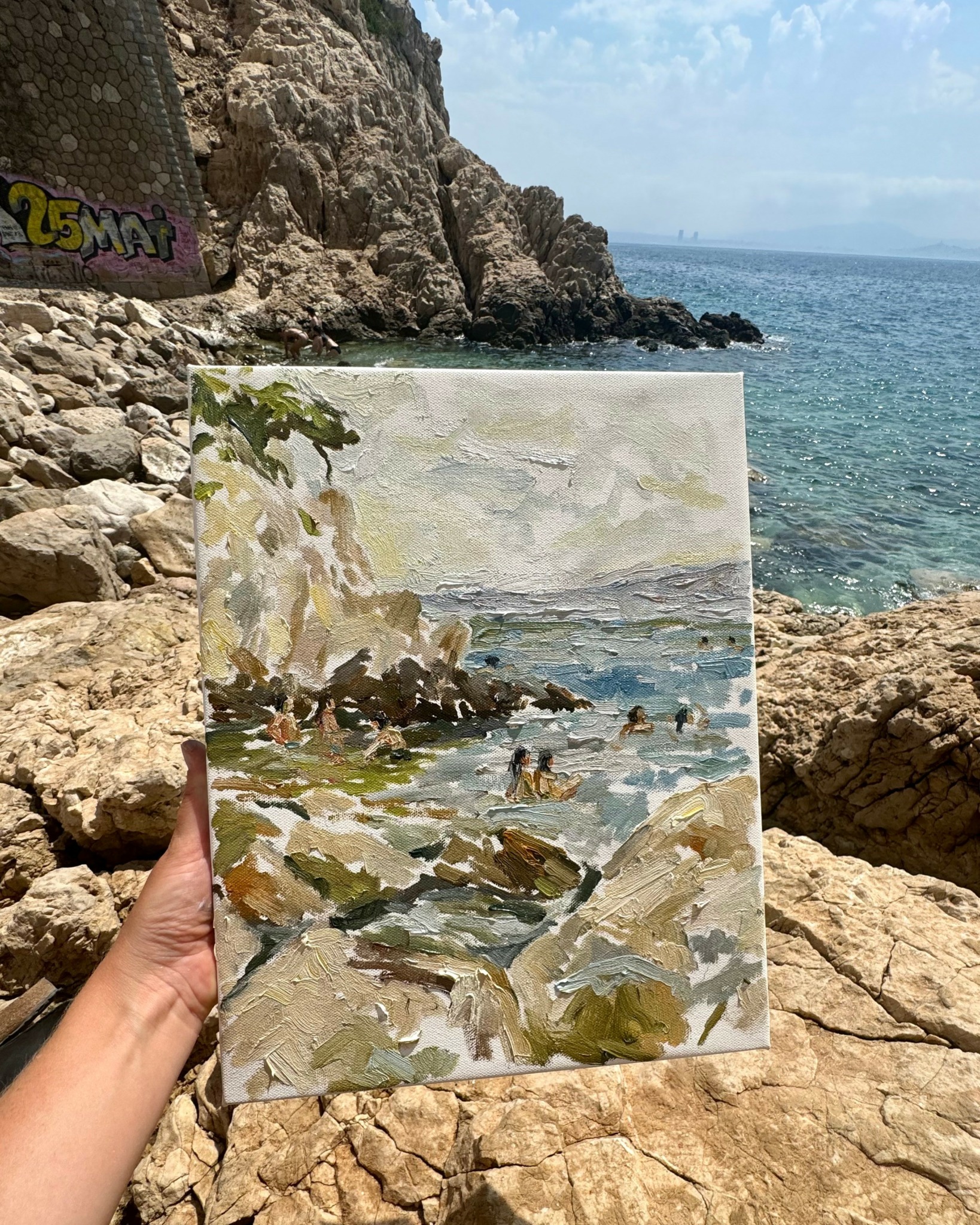
Lucy Clare, love having you share your insights with us. Before we ask you more questions, maybe you can take a moment to introduce yourself to our readers who might have missed our earlier conversations?
Hello! I’m Lucy “Clare” Spooner (yes, I go by my middle name), and I’m an artist. I’ve been an artist all my life, and six years ago I began painting full-time as a career, shifting my passion into my livelihood.
My grandfather was an artist, and I grew up with his influence, along with parents who had a strong love of the arts. We lived in the Middle East when I was young, which meant spending many hours on planes and generally waiting around (travel!), so I would sit with my pencil and paper and draw to pass the time. This also meant that we often had layovers in Europe, and my parents took me to the beautiful museums from a very young age, so I grew up understanding the importance of great art.
I did not study art in college! I went to the University of Virginia and studied psychology and French; a wonderful drawing class my last semester led to a strong friendship with an incredible professor, who encouraged me to keep drawing once I moved to NYC after graduation. I drew constantly while in the city, often on the subway–other riders, my own hands, whatever was in front of me–and eventually decided to see what might happen if I took a bit of time away to focus only on making art. The time had come to change jobs, so I took a few months in between the old job and the new one and moved to the south of France to study painting at an incredible school there, the Leo Marchutz School of Painting and Drawing. There, I fell in love with painting in oil en plein air in the beautiful Provençal landscape.
I returned to NYC, painted nights and weekends while I worked another interior design job by day, and began selling paintings, mostly without putting much effort into the selling of them. Eventually, I looked at my numbers and was thrilled to see that my income from painting was quite similar to the income from my salaried job (which, to be clear, was a low-paying position). I left that position in early 2019 and have not looked back.
I keep a painting studio outside of my apartment in NYC; I find it important to separate between work and home life, and my apartment is too small to do both (especially when I work in oil paint, which is fume-y). I paint in watercolor and oil, mostly from life whenever possible: landscapes, city scenes, figures, wildlife, florals, whatever I darn well please. I accept commissions for custom work (pets, children, weddings, the like) and also offer live drawing for private parties and corporate events, drawing guests while they pose for me for a few minutes as a little souvenir to take home.
I am particularly proud that I’m able to keep the love of painting alive: turning a passion into a livelihood is difficult and can tarnish the original love of the thing. To do this, I set aside dedicated time to paint for the fun of it, throughout the year in general but also by spending summers in the south of France, painting by the sea. It looks and sounds like a vacation, but it is, in fact, work; last summer I made over 100 paintings during the six weeks I was there. Heaven!
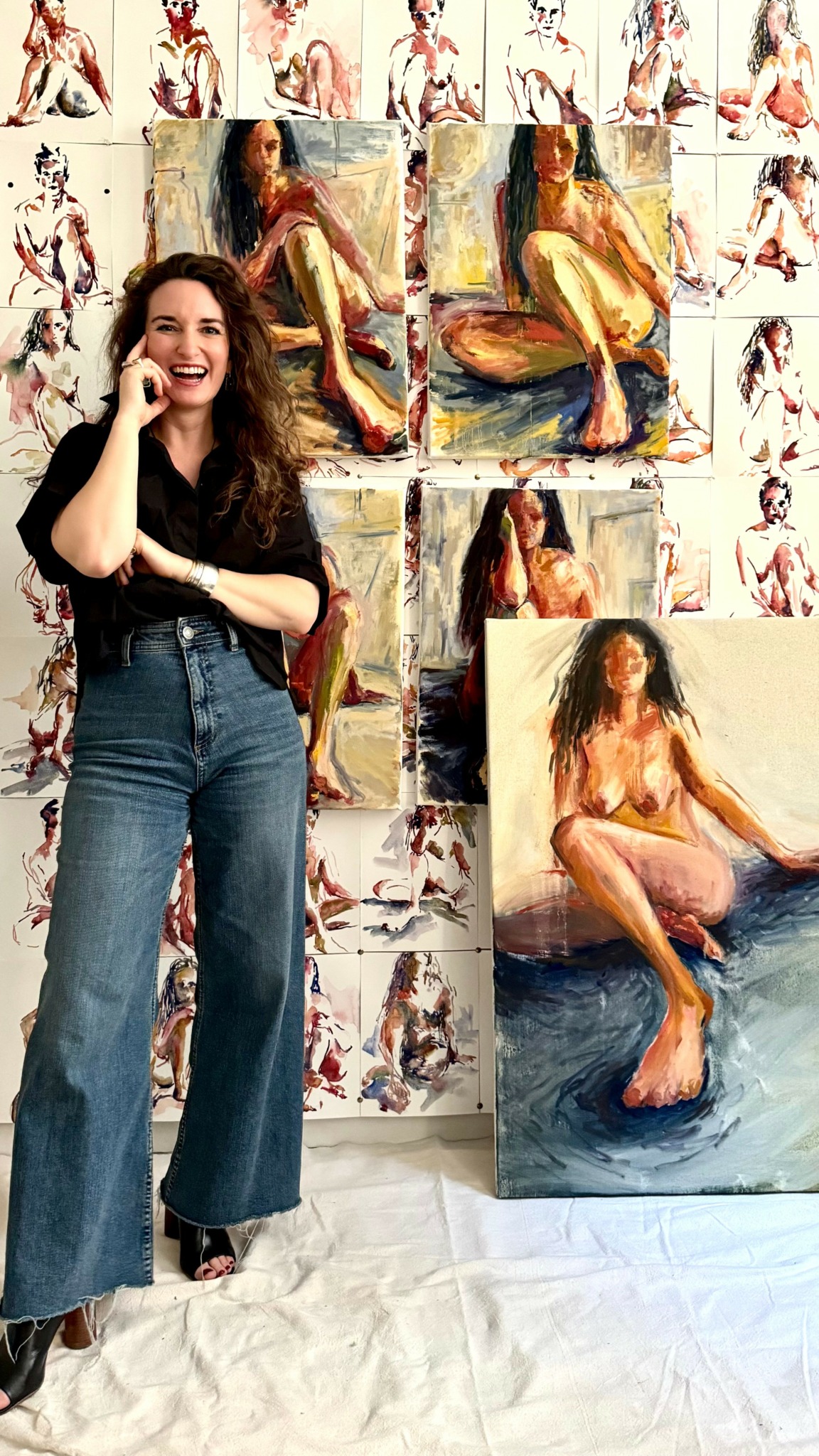
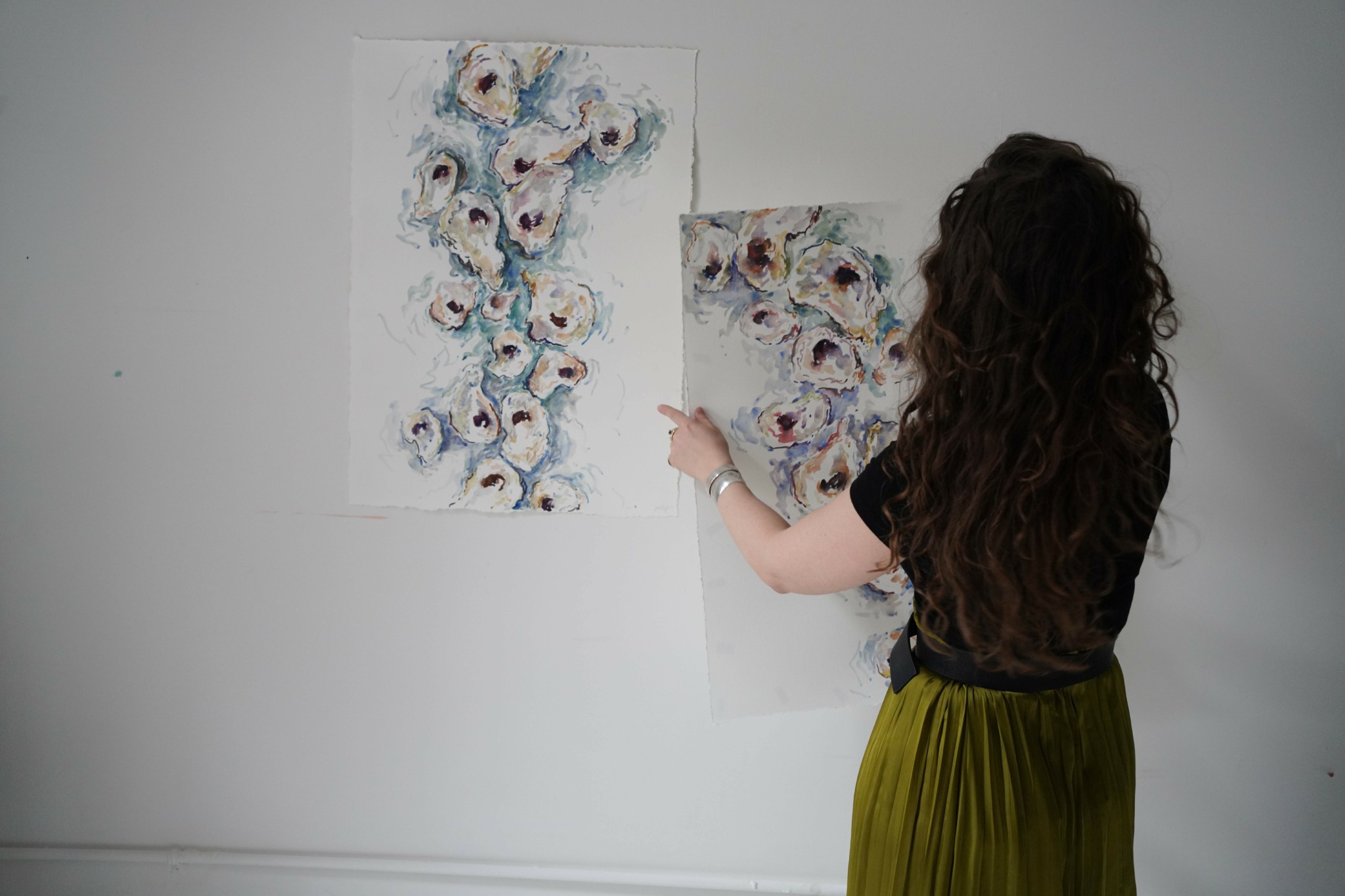
What do you find most rewarding about being a creative?
I’d like to amend this question and add “…of being an artist or creative *as a business*.” I really enjoy the mix of the creativity–making things with my hands that didn’t exist before–combined with the business side of marketing, organizing, planning, all of it. Right now, I’m still handling both sides myself, and I actually find this to work really well for me: I’m so closely tied to the marketing so that I see what works and what doesn’t rather immediately, but I also have this wonderful escape by working in my studio, away from the computer, painting the pieces for which I will later be marketing and organizing and planning. Being so closely connected to all parts I find to be quite rewarding.
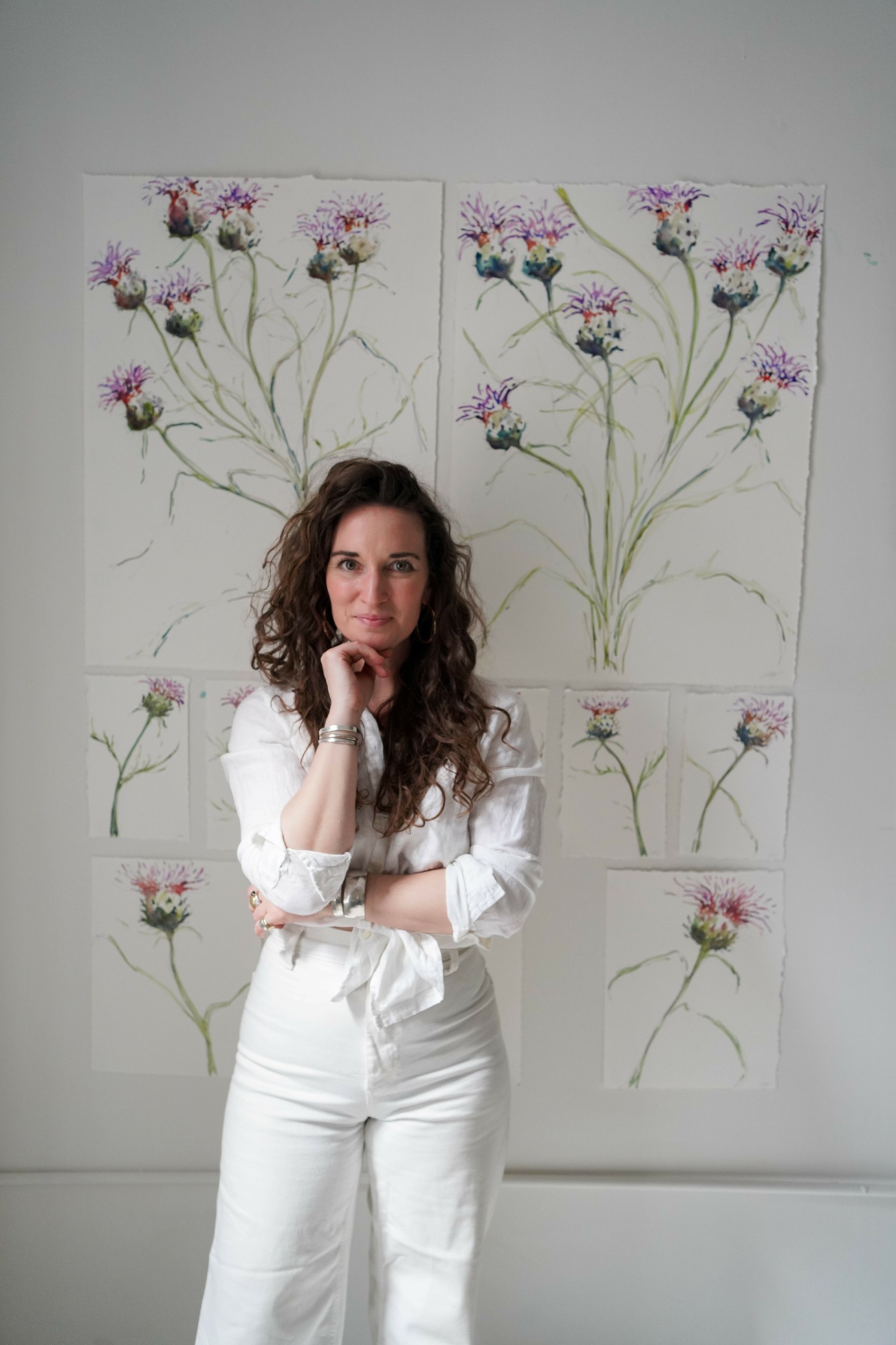
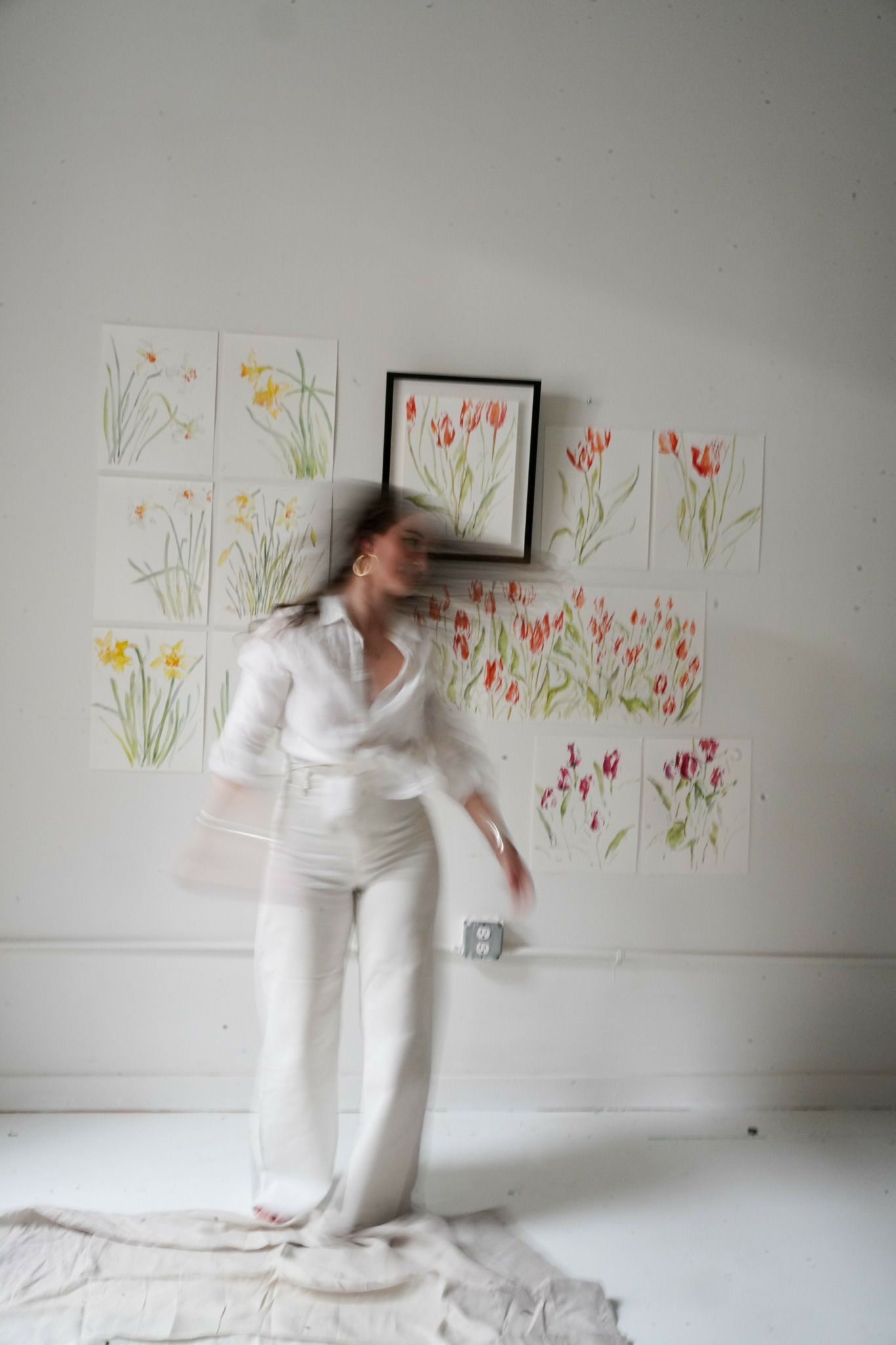
Is there something you think non-creatives will struggle to understand about your journey as a creative? Maybe you can provide some insight – you never know who might benefit from the enlightenment.
I’ve just spoken about the benefits of the business side of the creativity, but for me the greatest struggle is separating the emotional aspect of painting from the everyday, straightforward nature of selling a product. Unlike selling something that is produced en masse, I really feel as though I’m taking a little part of my soul and putting it onto the canvas or paper and then parading it around for the general public to accept or reject. A difficult endeavor! I’ve learned not to put work out into the world that I don’t fully believe in or love, which means that I’m confident in the work and therefore outside reactions–positive, negative, neutral–are largely irrelevant. If someone likes my work, lovely! If they don’t, it doesn’t bother me, because *I* like the work, and I know that if it doesn’t sell that day, it will likely sell in the future… and if not, I’ll hang it on my own walls. Self-confidence (and a thick skin, maybe the same thing) is a crucial part of showing one’s own artwork to others, which I think may be difficult to grasp for those not in the field.
Contact Info:
- Website: https://lucyclarespooner.com
- Instagram: @lucyclarespooner.artist
- Facebook: https://Facebook.com/lucyclarespoonerart
- Linkedin: https://www.linkedin.com/in/lucyclarespooner
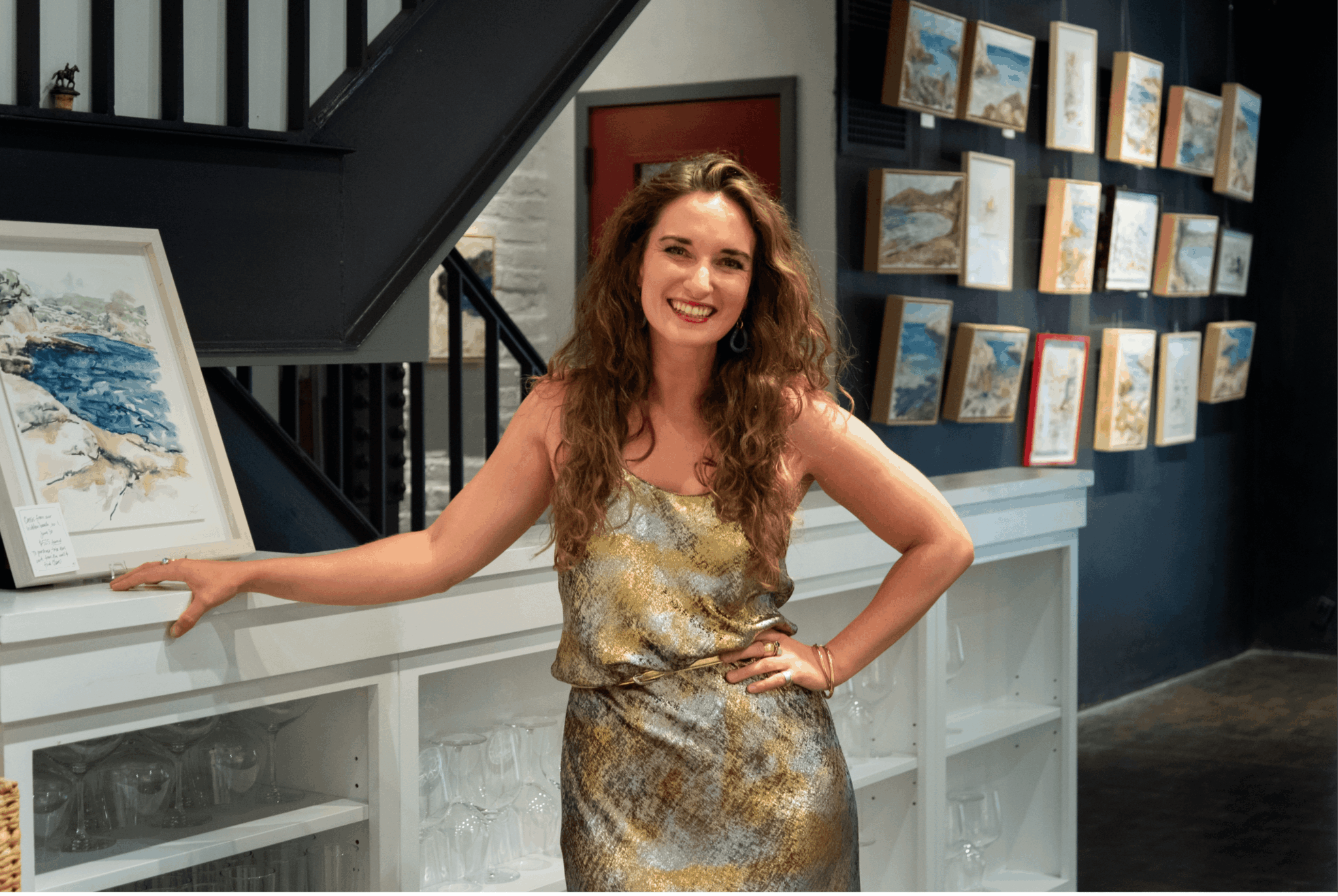
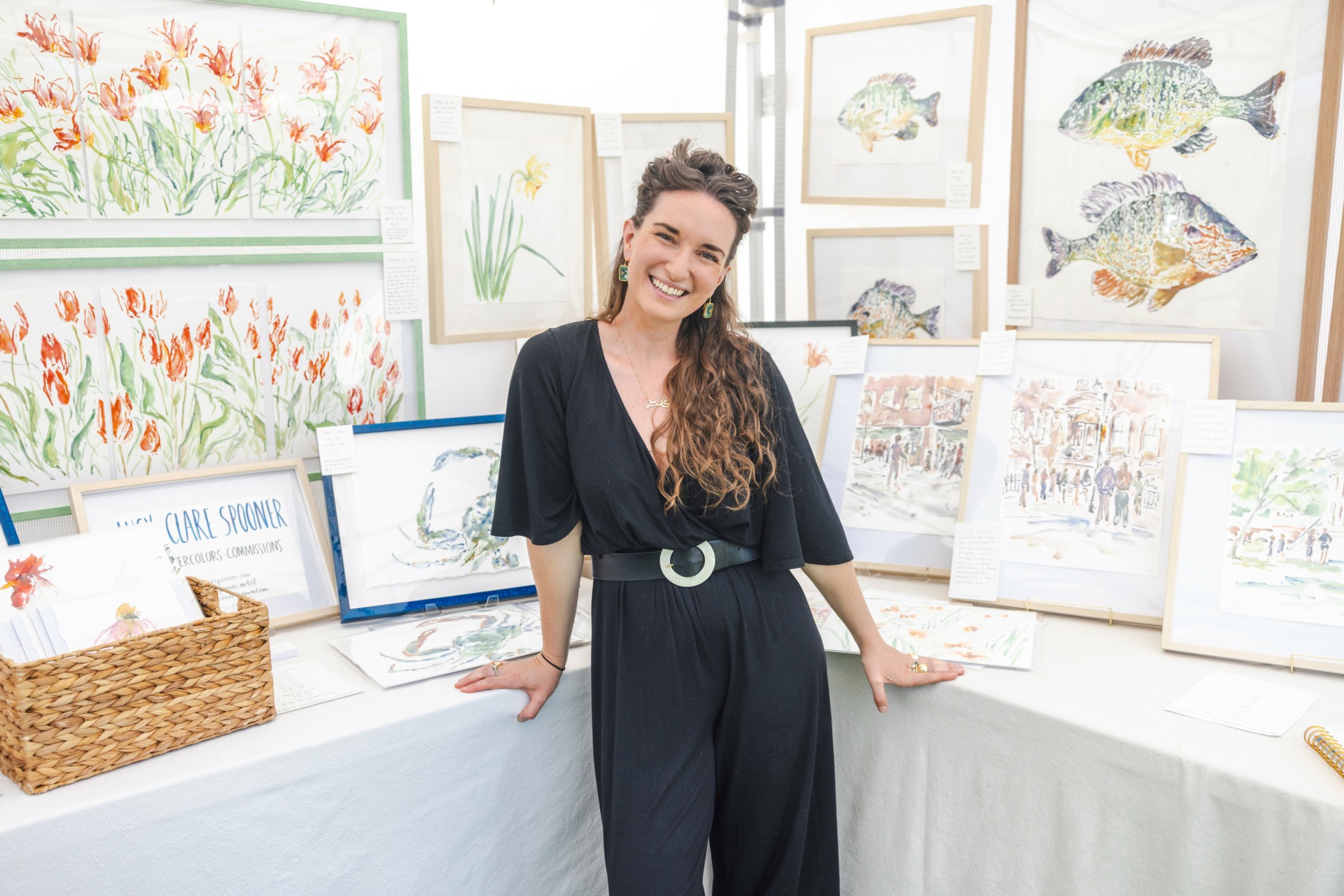
Image Credits
Kayla O’Connor
Daniel James
Colleen McInnis


